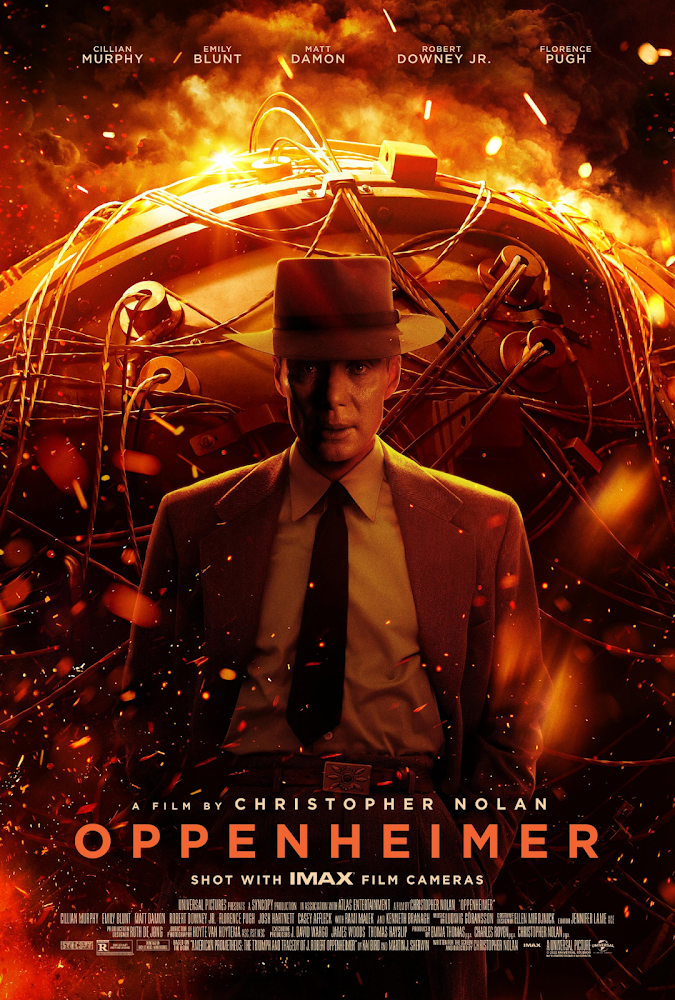Everyone has a story, but it tends to be the most tragic, monumental and thought-provoking stories that get told. Julius Robert Oppenheimer’s story falls into all three categories, inspiring the recent film adaptation of his life. Director Christopher Nolan was able to capture the intricacies of this story in his three hour film Oppenheimer starring Cillian Murphy, Florence Pugh and Robert Downey Jr among other notable actors and actresses. This film not only describes the historical importance of J. Robert Oppenheimer, but it also depicts the complexity of ethics, showing the emotional side effects of unforeseen consequences, ultimately making it a movie that needs to be seen.
Christopher Nolan’s film Oppenheimer follows the life of physicist J. Robert Oppenheimer surrounding his involvement in the Manhattan Project, the top secret government undertaking of designing and creating the first nuclear weapons during World War II. Oppenheimer and his team of scientists take years to perfect the math, physics and chemistry behind the atomic bomb before finishing construction. On July 16, 1945, this long awaited project finally became a reality as they successfully launched the atomic bombs on Japan, effectively ending World War II. Even after spending years on this project and trying to beat Russia to the technology, Oppenheimer was shown in the film to have not considered the possibility of the unprecedented emotional toll designing this bomb would have on him because, after all, he was just following orders. However, after the launch, Nolan depicts Oppenheimer questioning the morality behind such a powerful weapon, and how his contributions to this weapon reflected on his character. As the United States celebrates the effectiveness of the launch, Oppenheimer begins to feel responsible for the lives lost. During his speech detailing the government’s pride for all of the hard work put into the Manhattan Project, Oppenheimer has visions of innocent bystanders dying and lives being uprooted because of the weapon he created. The story progresses as Oppenheimer reflects on how his contributions to the devastating nuclear weapon impacts his character, his ethics and his morals. While the plot of Christopher Nolan’s film Oppenheimer is dramatized in order to consistently maintain the attention of the audience, it conveys the story in a way that feels true to reality.
A good movie often leaves the audience contemplating the answers to crucial questions. Oppenheimer leaves the audience not just questioning Oppenheimer’s morality, but also what makes a person good or bad, in circumstances other than warfare. Suddenly, considering these questions is all that more impactful on the audience’s daily lives. While there is importance in the historical timeline Oppenheimer takes place in, it is not necessarily what makes this movie such a great hit. Rather, it is the subtle consideration of ethics and character that make Oppenheimer a film worth watching.



























